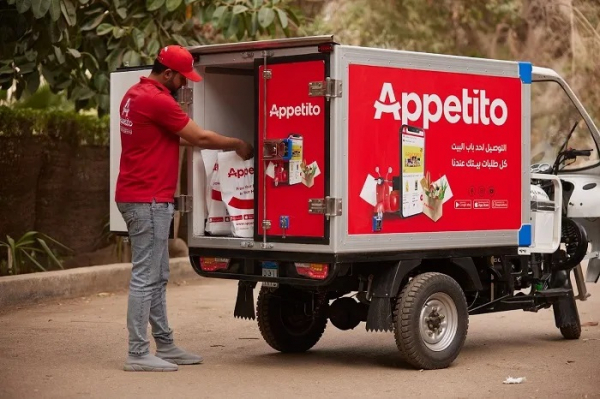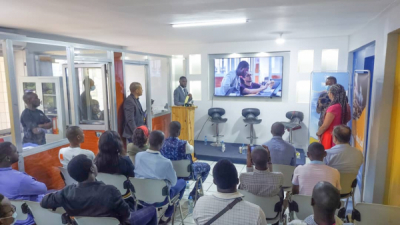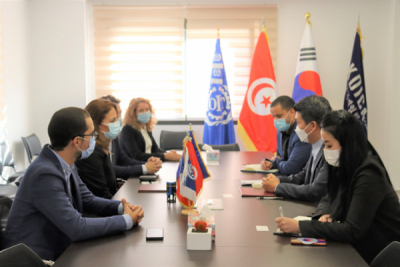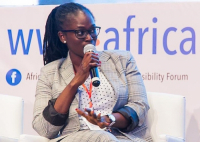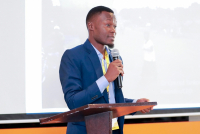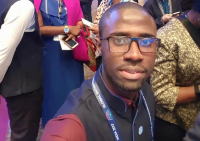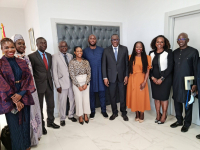After a pre-series A operation in November 2021, Appetito is acquiring Tunisian peer Lamma through a merger by absorption deal. Once completed, the process will create a new major q-commerce and e-commerce player.
Grocery delivery startup Appetito announced Wednesday (June 1), the acquisition of its Tunisian peer Lamma. The startup did not disclose the acquisition value but several media suggest it is between US$10 and 15 million.
The two startups decided to merge their operations under the brand Appetito, which will be operational in Morocco and Tunisia (Lamma’s markets) and expand into new West African territories.
“We believe it’s the best time to expand in Africa to solve the huge inefficiencies in the retail supply chain […] Having Lamma on board will put us on track to become the largest q-commerce player in the continent, transforming the lives of millions of people and creating thousands of direct & indirect jobs,” said Appetito’s CEO Shehab Mokhtar.
The acquisition deal is announced seven months after Appetito raised US$2 million in pre-series A funding, last November. The funds raised were used to expand the startup’s presence in Egypt and plan for regional growth.
Once completed (by Q3-2022), the merger by absorption plan will make Appetito the largest q-commerce and e-commerce player in Africa. From the three markets where it operates (Egypt, Morocco, and Tunisia), it will enter new continental markets, starting from West Africa.
According to Shehab Mokhtar, the q-grocery market still has strong growth potential. To illustrate his point of view, he informed that just 2% of the operators in Egypt’s US$60 billion grocery market are online. Also, the Middle-East and West African markets are fragmented and only a few firms have already succeeded in becoming major regional e-commerce players, he added.
Chamberline MOKO
After an extensive professional career, he decided to go back to his native country and offer effective data management solutions.
Philippe Nkouaya (photo) is a Cameroonian entrepreneur and founder of Philjohn Technologies, an IT services and consulting startup. Through the startup he founded in 2017, he offers firms sustainable solutions for quick file processing and sorting.
The startup was created following its founder’s insurance coverage issues. “It took [the insurer] close to a year to process my claim just because I was unable to find my files,” Philippe explains. After that incident, he decided to find solutions so that firms can find any file in “under three seconds.”
He is nowadays a reference in Cameroon. He graduated from The Limoges Computer Sciences Engineering School with a Master’s in Computer Science in 2016. But, his professional career began four years earlier in the entertainment industry. That year, he became the manager of Hope Music Group in Cameroon. In 2014, in conjunction with his duties at Hope Music Group, he was also an assistant IT manager for the communication firm Global Link.
In 2016, he worked as a business intelligence analyst at Business & Decision Group and then as an external IT consultant at Sanofi Pasteur, France. In 2017, he became the Chairman of Hope Music Group, in conjunction with his duties as chairman of Hope Clothing. When he launched Philjohn Technologies, he was a member of the board of Hope Management & Consulting (HOMCO).
Philippe Nkouaya is an E-Ambassador for Campus France. He also won several awards for his works in the digital entrepreneurship sector. He is for instance one of the beneficiaries of the 2018 TEF entrepreneurship program. In 2018, he received the Francophonie 35 under 35 Youth Awards and was named best digital entrepreneur at the Bonteh Digital Media Awards. That same year, he was also on Avance Media's list of the Top 50 most influential young Cameroonians.
Melchior Koba
Nowadays, digital skills are important to be employable or employ one’s self. Private and public actors understand that and they want to help the youth get those skills for an end to the ever-increasing unemployment problems.
Guinean incubator Ose Ton Emploi launched, Saturday (May 28), its digital training lab dubbed Sanku Lab. The lab, funded to the tune of €55,000 by the Orange Guinea Foundation, will train up to 2,100 people for ICT jobs, notably prototyping and creating digital solutions and tools.
At Sanku Lab, the trainees will have access to every piece of equipment needed like laptops, a 3D printer, a vinyl laser cutter, a heat press, electrical tools, digital embroidery machines, etc…
During the launching ceremony, Ose Ton Emploi’s founder Danda Diallo explained that Sanku Lab would henceforth be the cornerstone of his incubator’s activities. Praising the initiative, Youssouf Boundou Sylla, Secretary-general of the Guinean Ministry of Technical Education indicated that they are “socio-economic growth drivers.”
Ose Ton Emploi, created in 2018, aims to support young innovative project owners. It has already incubated several startups and is a member of Afric’Innov, a network of African incubators. Through its works, it helped school dropouts showcase their talents and initiate their professional integration. This is one of the reasons it was backed by the Orange Guinea Foundation.
“Because of the importance of the digital sector nowadays, we support digital initiatives to allow the youth to master the usage of digital tools, discover what they are passionate about, get trained, contribute their creativity to create startups, mature them and enter markets for guaranteed self-sufficiency,” said Amina Abou Khalil Nyame, Orange Guinea Foundation’s representative during the launching ceremony.
Ruben Tchounyabe
The coronavirus pandemic accelerated digital transformation in Africa. In its wake, governments committed to strengthening telecom infrastructures and expanding network coverage to allow access to digital services for most of their populations. For those investments to be effective, the services offered by telecom operators need to be affordable to everyone, even low-income earners. This is why by overtaxing telecom services, governments are negatively affecting digital transformation.
In 2010, the level of taxation on the Sub-Saharan African telecom sector caused heated debates between governments and operators. Governments, which were intent on securing more revenues, claimed that the tax rates were fair in the ever-growing sector. On the other hand, the GSM Association (GSMA) was warning of the long-term dangers of over-taxing the telecom sector. The taxes would affect the viability of telecom operators but also negatively affect development. Ten years later, the issue is still much present and the level of taxes levied on telecom operators is rising.
By 2017, Sub-Saharan African governments had already introduced new taxes because of the growth recorded by the telecom sector over the years with new services. Seven years earlier, the region was considered the third most taxed region in the world after Central/Eastern Europe and the European Union, but ahead of Latin America, according to the Global Mobile Tax Review 2010/2011 report by GSMA and ITU. It is now the first most taxed ahead of North Africa - the Middle East, and the Asia Pacific. On average, the taxes paid by the sector represent 25% of revenues. In 2016, the telecom sector contributed US$13 billion to tax revenues in Sub-Saharan Africa. In 2018, this contribution rose to US$15.6 billion but in 2020, it declined by US$600 million year on year.
Threat to digital inclusion
While corporate taxes are already affecting telecom operators’ profitability, the most concerning are sectoral taxes like those levied on mobile and internet services. Indeed, those taxes can directly affect the cost of the services, making them unaffordable for some populations. As a consequence, telecom may experience a drop in revenues, profitability, and the amount of tax paid to governments.
In 2019, the World Bank estimated that in Sub-Saharan Africa, nearly 85% of the population was living on less than US$5 a day. In the region, the mobile penetration rate was 46% in 2020. At the same time, internet penetration was 34%, including 28% for mobile internet, according to Hootsuite and We Are Social. Also, the average cost of a 1.5 Gigabit mobile data plan was US$6.1 or 6.4% of gross national income (GNI) per capita according to the ITU. This is highly unaffordable considering that, according to the Broadband Commission for Sustainable Development, a data plan is considered affordable when its cost is about 2% of GNI.
With internet taxes, some countries like Uganda (which introduced a 12% internet tax) make the service more expensive and exclude more people from the digital economy. The tax also threatens the survival of several businesses like e-commerce operators and those in the video-on-demand segment.
According to GSMA, of the 1.084 billion people living in sub-Saharan Africa in 2020, 303 million people (28%) were connected to the Internet via mobile, 570 million people (57%) were covered by a mobile network but not using the Internet and 210 million (15%) were not covered by a mobile network at all. A total of 495 million people were subscribed to mobile services, representing 46% of the population. Also, the smartphone adoption rate was 48% because of the costs of smartphones (according to the Alliance for Affordable Internet-A4AI). Even the low-cost smartphones offered by some manufacturers are still inaccessible for most because of import duties. The situation prompted Chad to issue, on January 24, 2022, a 5-year tax exemption for the importation of mobile devices (both smartphones and feature phones), automatic data processing equipment (desktops, laptops, and tablets), and dedicated accessories.
Threat to financial inclusion
Over the last ten years, mobile money has become one of the strong segments in the telecom industry, with millions of users and billions of dollars in transactions processed. Four years ago, a few countries started taxing that segment. They included Uganda, which introduced a 0.5% withdrawal tax in July 2018. The same year, Tanzania set its mobile money withdrawal tax to 1% before reducing it to 0.5% in October. In 2019, Zimbabwe introduced a 2% tax on every mobile money transaction.
The growth recorded by the segment during the coronavirus pandemic convinced more governments to tap into that windfall to fund post-pandemic recovery. In 2021, Cameroon introduced a 0.2% tax on electronic transaction. This year, Ghana introduced a 0.5% e-levy. In those markets, the taxes (both new and old) have always given rise to protests and disputes. In the Ghanaian parliament, e-levy discussions even led to physical confrontations between the pro and anti-e-levy.
Nevertheless, the contested taxes and levies allowed some governments to raise more revenues than expected. For instance, the Uganda Revenue Authority estimates that from July to December 2018, the mobile money tax generated US$28.3 million of revenue. Despite such stellar performance, mobile taxes have hampered financial inclusion. According to the World Bank, those taxes forced wealthy individuals to use banks instead while low-income populations who depend on family remittances experienced a reduction of their already meager resources.
The United Nations Capital Development Fund (UNCDF) reports that mobile taxes demotivated off-grid renewable energy users (usually located in rural areas) who used to pay their bills via mobile money. The fact threatens the profitability of the off-grid energy segment and the jobs created. Mobile money tax can also affect the e-commerce and agriculture sector given that many small farmers buy agricultural inputs, make micro-savings, etc., using Mobile Money.
The GSMA reports that telecom operators are not against taxation. They support effective taxation that does not unnecessarily hinder growth and negatively impact marginalized groups, it explains. So, corporate taxation could be the most effective way for governments to capitalize on growth in the telecom industry since corporate taxes are levied on the service providers’ turnover.
Muriel EDJO
By training, she was not destined for the heathtech industry. However, a painful incident convinced her that she had to act to save millions of people in Africa.
Beninese-born Bola Bardet (photo) is the founder and CEO of insuretech Susu. Based in Côte d’Ivoire and France, Susu allows the African diaspora to buy health insurance plans for their relatives living on the continent. The plans offered by her startup cover the treatment of chronic illnesses, preventive and emergency care, medical evacuations, and certified drug purchases.
She launched Susu to save others from her painful experience. In 2017, when she was preparing for her MBA in Paris, her father died of poorly managed heart problems. “My father died in 2017 after he had a heart issue in Benin and could not be saved. The health issue was a complication from his hypertension that was poorly managed. At that moment, I was finishing my MBA at HEC Paris and the goal I set for myself was to try to prevent that from happening to other people, maybe that will be something good that I can do in my life,” she explains.
She aims to initiate her startup’s African expansion and enhance offers in Côte d’Ivoire, Senegal, and Cameroon. For that purpose, in March 2022, she secured US$1 million in pre-seed funding and US$1.2 million in debt and grant financing from BPI France.
Mrs. Bola is an executive MBA graduate. She also has a Master’s in Management and several professional and social entrepreneurship certificates. Over her fifteen years of professional experience, she sharpened her skills with LCN Communications, luxury goods holding company Richemont, and investment bank JP Morgan Chase & Co.
In 2019, thanks to Susu, she was the winner of the Sanofi challenge organized during the Viva Tech conference. This year, she is also a finalist of the Female Founder Challenge organized by Viva Tech in collaboration with 50inTech.
Melchior Koba
Professional insertion has become a worrisome issue in several African countries. To address this challenge in the digital era, national and international experts are moving to elaborate the most-suited strategy.
In the next four years, several international partners will support Tunisia in the creation of ICT jobs for its youth and women. On Monday, May 30, in Gammath, the Ministry of Vocational Training launched a project in that regard.
Dubbed IPTIC, the project is funded by the Korea International Cooperation Agency and implemented by the International Labour Organization’s country office in Algiers.
The project will focus on two axis in Tunis, Sousse, Sfax, Manouba, Kairouan, Zaghouan, Sidi Bouzid, Jendouba, Kasserine and Gabes. They are namely improving the capacities of government agencies dedicated to the implementation of the national employment strategy and the diagnostic study of ICT employment in each region. In Tunis, Sousse, and Sfax, the project will also develop ICT value chains.
The project is the result of an agreement signed, in December 2021, by Rania Bikhazi, Director of ILO’s country office in Algiers, and Kim Hanvit, KOICA's acting country director in Tunisia. It will capitalize on the achievements of EDJEF, a project carried out from 2018 to 2020, to promote the employability of women and the youth in Kairouan, Zaghouan, Tunis, and Manouba.
Muriel Edjo
Currently, her smartphones are ambitious competitors to low-cost brands.
Fadima Diawara (photo) is the founder and CEO of Kunfabo, the startup that contributes to digital inclusion in Guinea. In Malinke, kunfabo means “keep in touch”. So, the startup founded in 2017 wants to contribute to digital inclusion in Guinea and Africa as a whole.
Kunfabo smartphones were introduced in the local market in 2020 with preinstalled apps like Find me (which helps geolocalize nearest health centers and pharmacies), Afro Cook (a recipe search engine for African foods), and Dikalo, the messenger app developed by a Cameroonian startup. The smartphones run Android 8.1, are 4G-compliant, and are certified by international bodies, including several in the European Union.
Fadima initiated the Kunfabo project after she noticed the strong demand for quality and affordable smartphones in Africa. "Kunfabo came to meet this need by creating an African brand that represents us and that Africans can identify themselves with," explains the tech entrepreneur. She launched the smartphone thanks to a €300,000 loan she obtained from Societe Generale Guinea in November 2019. Barely a year later, in August 2020, she repaid that loan, testifying to the financial health of Kunfabo and the viability of her project. To date, her startup has sold over 4,000 smartphones.
Fadima Diawara started her professional career, in 2013, as a sales agent at Organo Gold, Spain. In 2015, she joined the administrative management department of Vueling, a low-cost airline. A few months later, she joined Prefabricats Planas before her recruitment at Bershka. In 2017, she was recruited at Lozano Imports Inc, where she stayed for three months before embarking on the Kunfabo adventure.
Her investment in the smartphone manufacturing industry earned her several awards over the years. Those awards include the Original Startup of the Year award in Spain in 2020. The same year, she won the award for best female entrepreneur of the year in Girona, Spain. She was also one of the winners of the 2020 Africa-France Summit Challenge.
Melchior Koba
After four years of witnessing the pains of women in a rural area where he was the head doctor, he created a healthtech to facilitate breast and cervical cancer screening.
Conrad Tankou (photo) is a Cameroonian entrepreneur and founder of heathtech startup Global Innovation and Creativity Space (GIC Space). Through GIC Space (founded in 2018), he developed GICMED, a project aimed at facilitating remote cervical and breast cancer screening.
“GICMED offers cutting edge and cost-effective MedTech and Telemedicine Innovations, enabling poor, remote, and rural communities with the greatest need to enjoy affordable and accessible healthcare,” the startup explains on its website. Indeed, with its services and products, notably breast and cervical cancer screening, smart speculum, fine needle biopsy syringe adapter, and digital pathology center, it allows patients to remotely and quickly get screened wherever they are. It also allows doctors to seek their colleagues’ contributions.
With GICMED, Conrad wants to help women living in remote areas quickly access cervical and breast cancer screening. His wish is to see the solution deployed in every village in Cameroon and Sub-Saharan Africa.
For his works, the P.h.D (in biomedical science in 2013) holder has earned several national and international awards and recognitions. For instance, through GICMED, he won Cameroon's 2019 Startup of the Year award. Then, a year later, he won the Next Einstein Forum Challenge in Kigali. In 2021, GICMED was the winner of the Africa Young Innovators for Health Award presented by the International Federation of Pharmaceutical Industries and Speak Up Africa.
Before GIC Space, Conrad Tankou had co-founded (with his compatriot Alain Nteff) GiftedMom, in 2013, to improve maternal and child health. From 2014 to 2018, he was the head doctor of Bambalang Medical center, in North-West Cameroon.
Melchior Koba
Barry heads two digital projects, providing solutions to both young tech entrepreneurs and the general public. He is always on the lookout for “the next thing to create.”
Adulaï Bary (photo) is a Bissau-Guinean serial entrepreneur and co-founder of incubator InnovaLab GW. Thanks to the Bissau-based incubator he co-founded in 2016 (with Claudinecia Cabral), he built an ecosystem that facilitates innovative entrepreneurship in the education, agriculture, health, and infrastructure sectors. He offers local innovators the opportunity to mature their project ideas and create successful startups.
He is also the founder of BIGTechnologies SARL (founded in 2014), which develops IT solutions for public and private institutions. Through BIGTechnologies SARL, he designed Ubuntu 2S, a smart solar home, and kiosk system, which helps provide clean energy in remote areas. With Ubuntu 2S, he wants to contribute to digital inclusion in rural areas by first solving their energy access problems. The project, which is operational since 2020, won the Live Innovation Impact Grant Program at the Dubai 2020 World Expo.
In conjunction with his entrepreneurship career, Bary also has prolific professional experience. With a BSc in Applied Computer Science (obtained in 2012), he started his professional career as a storage manager for MOGJ Commerce, a local commercial firm. The same year, he joined Orange Bissau as a support systems engineer before his promotion to the position of functional manager.
After leaving Orange Bissau, in 2018, he became a UNDP consultant for business incubator feasibility. From 2019 to 2020, he was also a youth employment specialist for the International Organization for Migration (IOM).
Apart from his BSc in applied computer science, Adulaï Bary also has an MBA in Business and entrepreneurship obtained, in 2016, from the University of Nevada, during his Mandela Washington Fellowship. In 2017, he took part in the Global Entrepreneurship Summit. Then, from 2017 to 2019, the serial entrepreneur was the Bissau Guinean ambassador to Next Einstein Forum, which highlights breakthrough discoveries and promotes scientific cooperation. In 2018, he was selected as one of the 100 most influential West African young leaders.
Melchior Koba
In Africa, ICTs have proven their worth in resolving key issues in almost every sector, including the health sector. By using their tools, Senegalese authorities want to improve healthcare.
African genomics startup 54Gene and Senegal will soon launch a program aimed at assembling the reference genome of the Senegalese population. In that regard, the startup signed, Tuesday (May 24), a memorandum of understanding with the Senegal Academy of Science and Technology (ANSTS) and Cheikh Anta Diop University’s department of human genetics.
The program dubbed SEN-GENOME is scheduled to start in July 2022 and initial results are expected for December 2023. Based on results from the genomic study of the country’s main ethnolinguistic groups, it will help lay the foundation of precision medicine, and identify the hereditary risk factors of some diseases like cancer, heart diseases, and hereditary diseases. It will also allow better health surveillance for the Senegalese population.
For Prof. Aynina Cisse, ANSTS representative during the signing ceremony, SEN-GENOME is launched because researchers noticed that “the reference human genome currently used is not representative of the genetic variety of Africans as a whole and Senegal in particular.”
In that regard, the program will establish a reference genome reflecting the genetic diversity of the Senegalese population. The reference genome assembled will be used to improve the diagnosis, prognosis, treatment, and prevention of the most common diseases. It will also allow anthropologists to better understand communities’ socio-cultural history.
“Modern medicine will rely on every individual's gene pool. SEN-GENOME, which is the first reference genome project in Francophone sub-Saharan Africa, will help initiate a genomic medicine plan in Senegal,” explained Prof. Rokhaya Ndiaye Diallo, head of Cheikh Anta Diop University’s department of human genetics.
"Africa has the most genetically diverse population but, those populations are poorly represented in international genomic databases. SEN-GENOME will help fill this gap and allow Senegal further precision medicine,” commented Dr. Abasi Ene Obong, 54Gene founder and CEO.
Muriel Edjo
More...
By digitizing the entire health system, the government wants to give digital identities to every patient to improve healthcare services.
Rwanda is moving to digitize its entire health system by 2024. The project was announced by the Permanent Secretary of the Ministry of Health, Zachee Iyakaremye (photo), at the launch of the 2022 Health Research and Policy Symposium last Tuesday (May 26). According to the official, the aim of the project is to give a digital identity to every patient.
“The action plan is to have all the patient information in one place and digitalized so that we do away with paperwork completely. [...] This will also be possible by combining the national identification with the medical identification so that a patient can have one identification number which they can use to get treatment in any health facility in the country,” he explained.
In its initial stage, the project will cost about US$12 million with anticipated total costs estimated to reach US$34.3 million in the long term. The health system digitization project aligns with the country’s One Health II strategic plan (2019-2024). In Rwanda, patients visiting health centers are still required to carry physical medical logbooks although more than 400 of its 513 health facilities have computers that can help store patient data. The government initiated the digitization of the medical data at the district, regional, and referral hospitals. However, there are still thousands of paper medical logbooks awaiting digitization.
For Jean Baptiste Byiringiro, chief digital officer at the Ministry of Health, digitization of the entire health system will solve that issue and many others. He announced the upcoming arrival of equipment essential for the digitization project as well as the construction of a data cloud, the installation of required equipment, and staff preparation.
Ruben Tchounyabe
She federated law professionals to give African countries the required expertise for the development of adequate innovation frameworks. Her works earned her the recognition of several renowned institutions and agencies.
Linda Bonyo (photo) is a Kenyan lawyer specializing in digital law. Her works focus on data governance, digital identity, internet governance artificial intelligence, intellectual property, Etc…, help improve digital regulations and policies in Africa.
She is also an entrepreneur who founded Lawyers Hub, a legaltech company, in 2017. As a pan-African lawyers’ network, Lawyers Hub specializes in digital law training and consulting. Through her legaltech, Linda organized, in 2020, Africa’s first lawtech festival. Baptized Africa Law Tech Festival, it gathered more than 20 African countries and over 1,000 participants.
To support tech startups and promote collaboration between tech and law professionals, she created Lawyers Innovation Hub. All those achievements surely contributed to her selection to this year’s edition of the RoW100: Global Tech's Changemakers list that celebrates those who are “shaping national policies,” among others.
As an attorney at the Supreme court of Kenya and member of several legal organizations such as the Pan African Lawyers Union and the East Africa Law Society, she wants to get fellow lawyers more involved in innovation policies. “The place of policy in innovation I believe should be passionately pursued by lawyers, however, this is not the case presently. Many lawyers, regulators, and policymakers are caught in a maze on what exactly innovation and tech means for the future of regulation and entrepreneurship,” she believes.
Linda began her professional career in 2010 at CRADLE Child Rights Foundation. The same year, she joined the Jomo Kenyatta University of Agriculture and Technology Ombudsman's office as the Legal Director. From 2013 to 2014, she worked for Transparency International as a governance and policy lawyer. Then, from 2014 to 2017, she was an immigration lawyer at the law firm Bonyo & Co. She was also a member of the 2020-2021 cohort of the Tech Women Emerging Leaders Fellowship. Since 2021, she is a contractual Digital ID & Data Governance consultant for the United Nations Economic Commission for Africa. She is also a member of the Real Facebook Oversight Board, in charge of content moderation decisions.
Melchior Koba
The project is in line with the government’s plan to make ICT a driver of growth and socio-economic development.
Niger wants to capitalize on digital technologies to improve its farmers’ production and growth. In that regard, last Saturday (May 28), it launched a digital innovation project dubbed IDAN ( projet d’innovations digitales pour les agro-pasteurs-IDAN). The project is aimed at helping boost revenues by 10% by offering access to integrated digital solutions for 35,000 farmers and pastoralists (including 15% women and young people) in Dosso, Tahoua, and Tillabéri.
IDAN will help agro-pastoralists make informed decisions daily. It will help them for instance decide “whether or not to buy inputs, the price at which to sell their milk, hides, livestock, cereals, and vegetables as well as knowing when to migrate with their herds,” explained Paul Tholen, the Dutch ambassador to Niger.
According to the diplomat, in the framework of the project, a virtual marketplace will be created where farmers and pastoralists will offer their products. At the same time, a call center will be created allowing beneficiaries to request geo-satellite data and production tips.
IDAN is being developed by the Netherlands Development Organization (SNV), since April 1, 2021. It is funded by the Dutch embassy in Niger to the tune of about XOF3 billion (US$4.9 million). Its launch follows the validation (in March 2022) of three studies commissioned to gauge its socio-economic impact on target populations.
During the launching ceremony, Niger’s Livestock Minister Tidjani Idrissa Abdoulkadri (photo), praised the initiative that backs the government’s efforts in the improvement of residents’ living conditions and the fight against food insecurity.
Ruben Tchounyabe
The startup allows users to safely and comfortably travel to major cities in the country.
Easy Matatu is a Ugandan startup founded in 2019 to help commuters access reliable and convenient transportation means. The startup founded by Andrew Ssali, Lema Carl Andrew, and Precious Turinawe has raised US$500,000 in two funding rounds to successfully carry out its mission.
“ We are a platform that is connecting commuters in Africa to safer, more reliable, and cleaner transportation. Easy Matatu is built for the working professional looking to make it in this world, for the bold African woman raising a nation,” the startup explains on its website.
The startup has a mobile app (available on PlayStore and AppStore) through which users can access the various services it offers. Through the mobile app, users can register by filling in a set of personal information, to become an Easy Matatu driver or commuter.
Whenever a user signs in on the mobile app, available pick-up points are shown on the map. So, commuters can choose the closest to them. To keep true to its reliability commitment, Easy Matatu is always on time at the pickup points and its waiting time at those points rarely exceeds five minutes. To facilitate payments, the startup’s mobile app integrates a wallet that can be loaded via mobile money. The startup also has a reward system to encourage its commuters. For instance, commuters can refer their friends and family members and earn up to USh5,000 (about US$1.37).
Let’s note that the startup is one of the 45 startups selected for the first edition of the AfricaTech Awards. It was selected in the category of Climate Tech startups.
Adoni Conrad Quenum


